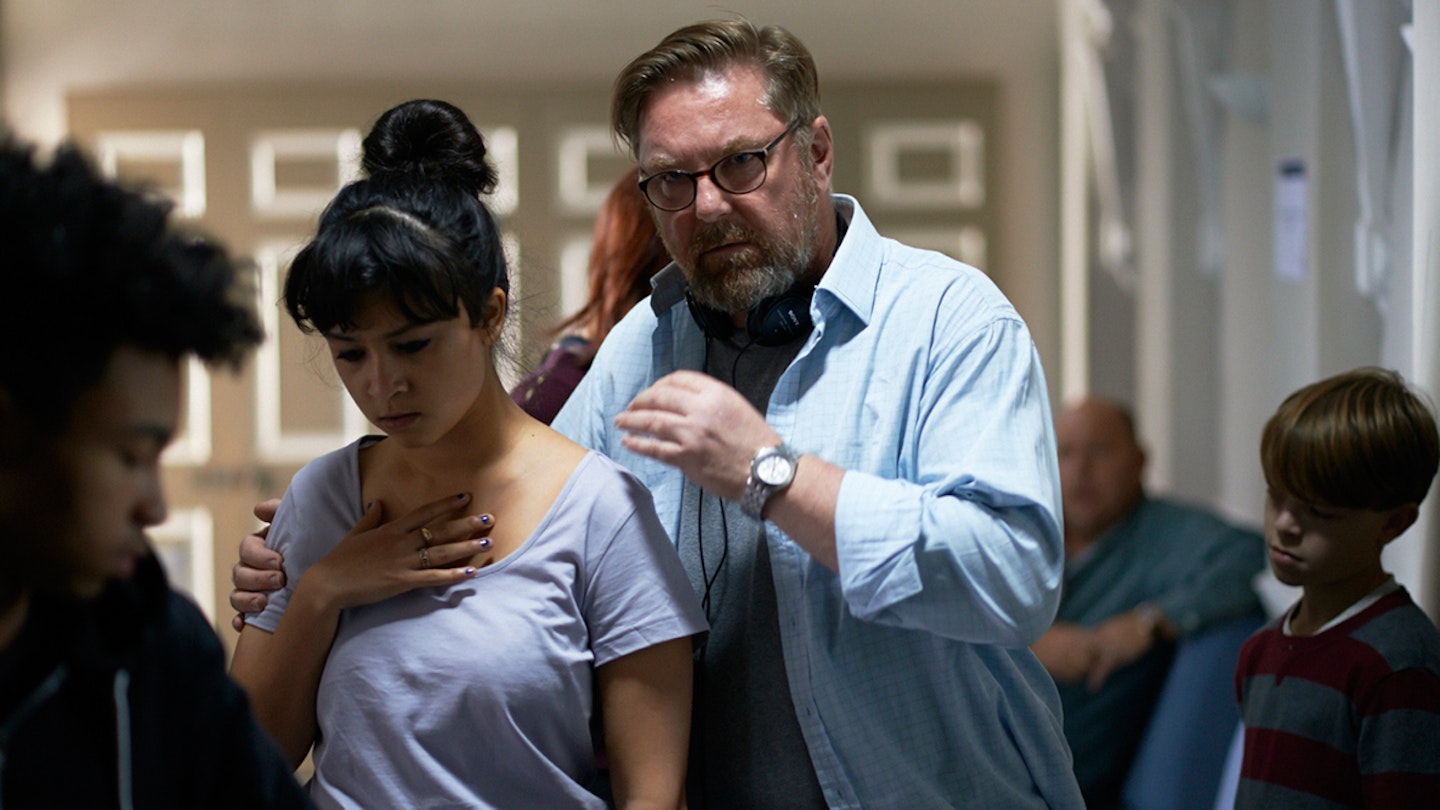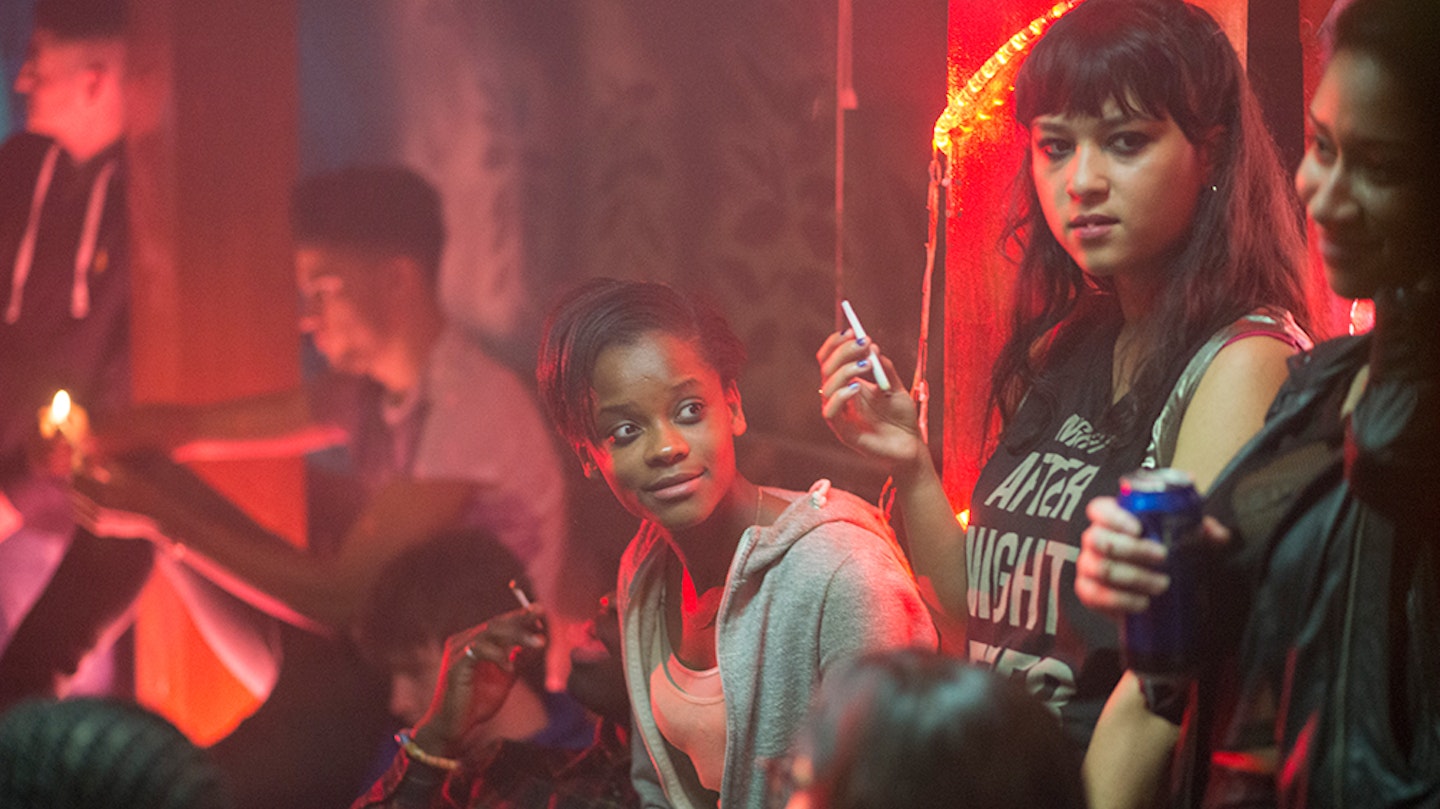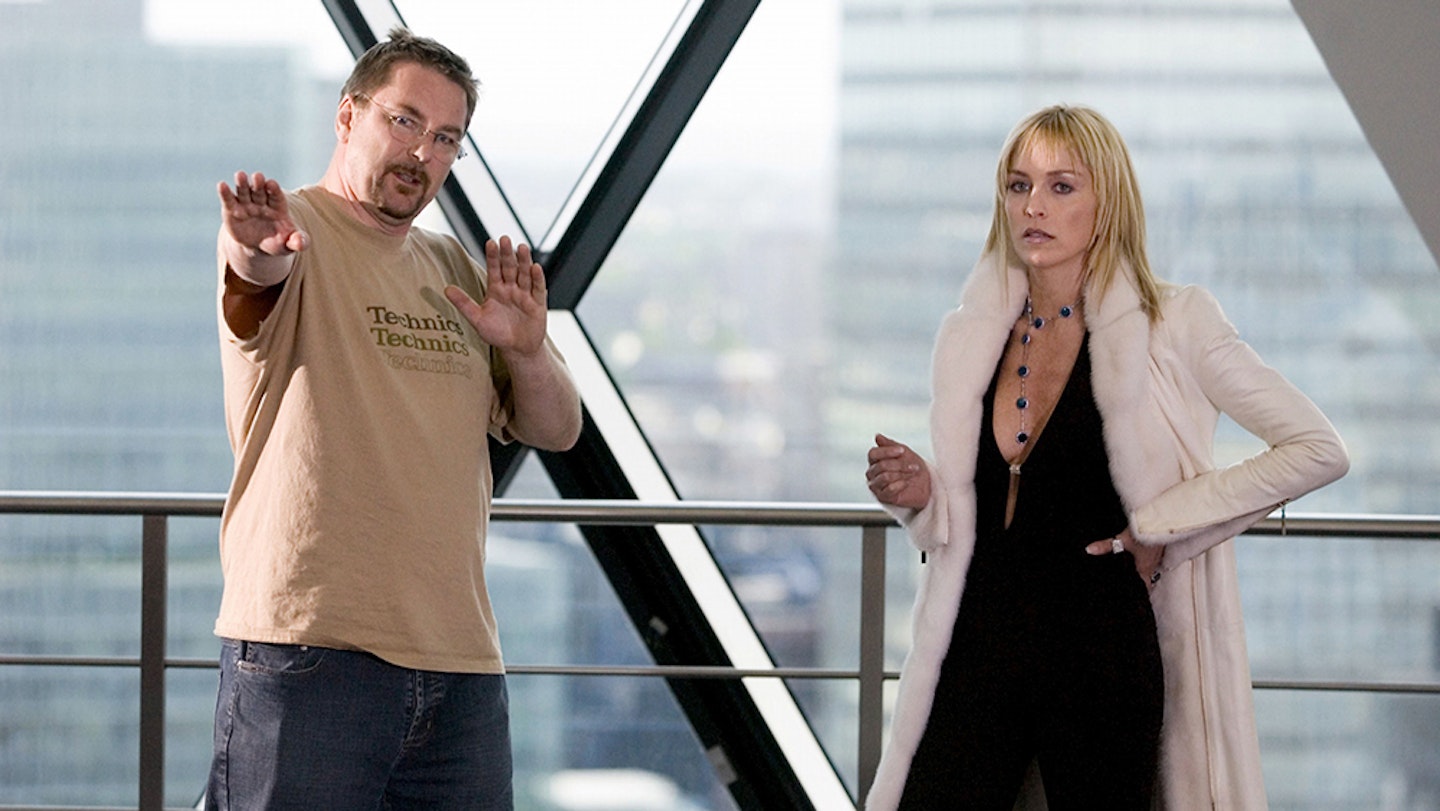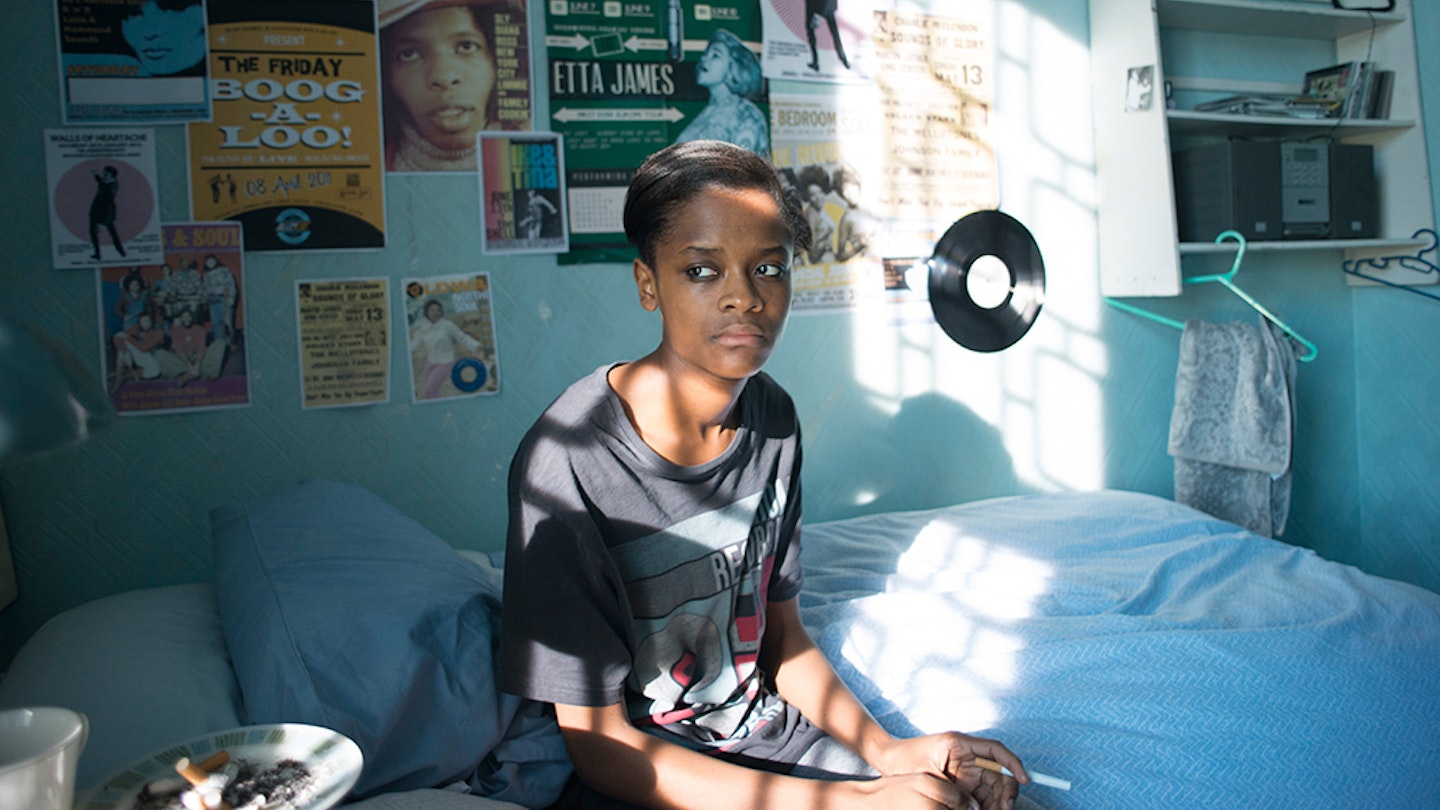Michael Caton-Jones is fresh from the airport and girding himself for the press round on Urban Hymn when Empire catches him. "I'm in the middle of prepping for another film so it's a bit of a mindfuck to bring your brain back," he laughs. On the agenda is a post-London riots musical drama that's tricky to pin down but which, as the wry Scotsman is at pains to point out, definitely has nothing to do with '90s indie stalwarts The Verve. Instead, it's the story of a fiery young Londoner Jamie (newcomer Letitia Wright) with a hidden talent but many obstacles in her path, including her own troubled best friend Leanne (Harry Potter's Isabella Laughland).

Has anyone asked you if this is a film about The Verve?
Haha, no. I felt we could probably have found a better title, but it had been the historical title for some time. It was similar to The Verve, for sure, and people could get confused. On one level, it cheesily reflects what the film's about, but on another level I was making it about something else...
What was that original idea?
Well, when you pick up a script you want to do you generally have a theme you're trying to work with, and then it expands from that. With this one, I wasn't sure what kind of film it was until I was almost finished. Was it a social realist film or a musical or a character study or an intimate female interaction film? Of course, it ended up being a bit of all of those, but it was hard to say "it's this".
It sound Ken Loach-y on paper.
Like a Ken Loach musical. The reaction to [Urban Hymn] has been interesting to me: male critics have looked at the simplicity of the storyline, yet females have responded to it differently. They've seen it as a tapestry of different emotions which are quite varied and oppositional. Some people see it as really simplistic; some people as very complex.
Not many films have tackled the London riots of 2011 yet. Why do you think that is?
There's no money in it, it's simple as that. The film industry is fucked. They're not making interesting films anymore, they're making $250 million spandex films or no budget films. The middle has fallen out, unfortunately. I don't think there's any money to be made doing something that's that contemporary without having a spin on it. If there's a London riots film with zombies, that'd have more chance.
If there's a London riots film with zombies, that'd have more chance of being made.
Would Memphis Belle or Rob Roy be harder to get made now?
Yes, definitely. Memphis Belle less so because it's got fanboy stuff, but things like This Boy's Life would be very difficult to get made. Maybe on high-end cable, if you could stretch the story out to ten episodes.
Was there something personal in Urban Hymn for you?
I know what it was like to be a parent and I know what it's like to be a kid who wants to do good, and I also knew plenty of people who were dangerous to be around. I knew these things could be universal, certainly to teenagers. I watched it at the Giffoni Film Festival near Naples, which the film actually won, with four or five thousand 16, 17 and 18-year-olds and to these teenagers it pinpointed many of the things they were going through. That only comes from trying to translate bits of your own life to the film.

Was it hard getting the balance of the different aspects right?
That was the hard part, trying to make sure there wasn't too much music or too much grief. It's a technical challenge too, because you have to shoot every song full-length as you don't know which bit you're going to use. We had to find the music, clear it, have it arranged and recorded before we'd even started, which is normally done afterwards.
How did Billy Bragg's cameo come about?
It was because the writers had heard about his initiative (instruments in prison charity Jail Guitar Doors) and written him in [to the script], he'd got hold of it and said, "No, it's not like that, it's like this," and volunteered to come in for a day. Billy's not an actor – he'd be the first to admit that – but he was playing himself giving variation on his speech to real inmates about eight or nine times, did a song for us and we condensed the whole thing down. That's what I mean by not knowing what kind of film it is: you're doing this thing with these two girls after the riots and then along comes Billy Bragg for a sing-song day.
Had you seen something in Letitia Wright before that made you cast her as the lead?
No, not at all. Actually, the part was written for a white girl. We got lots of people in and read them. It became obvious that I could get lots of hard girls off the streets, but it's harder to act hard than to act traumatised or soulful or conflicted, which is what that character needed. Letitia originally read for Leanne (Isabella Laughland's part) and did a great job, but it was only when I got Issy's tape that it occured to me to flip the roles. So we got her back in, read her and she was really good. She and Issy got on like a house on fire.
You're the man who first cast Leonardo DiCaprio in a movie in This Boy's Life and you got a thank-you in his Oscars speech.
(Laughs) He's a very well brought-up boy. I'd actually seen him a few months earlier and we'd talked. My memory was of being really hard on him but he said he wouldn't have swapped it for anything, that it was the making of him.
My memory was of being hard on Leo in This Boy's Life but he said it was the making of him.
Did he need tough love back then?
He did, he was a wild boy. He was very talented but he could have gone either way. You couldn't have predicted what would happen to him. He was like a sponge back then. It's the same with Letitia – you get them at a certain age and you can really fill them full of good habits. Even more than Leo's performance in This Boy's Life, I'm really happy to have given him good habits that he's taken on.
Who was the last member of the Memphis Belle you bumped into?
Eric Stolz, recently. I was reading an actor in New York who brought me regards from Eric. He was directing a TV show in Brooklyn, so I took an insulting selfie and sent it to him.
The cast seemed to have a lovely chemistry on that film.
Well, it was controlled and calculated. We sent them off to bootcamp for two weeks with three SAS guys, and these pussy actors from LA had a really hard time. We sent them out into the wood with no food, no water. They hated it at the time but loved it afterwards and it paid enormous dividends on set.
It must have been odd filming different sections of the plane with the actors performing individually in shots.
There were six different parts of the plane and we had to film each one individually, so it only existed in relation to being cut together. For a long time we didn't know what we had. I had a brilliant editor on that (Jim Clark).

What are your memories of Basic Instinct 2?
I remember coldly thinking "this is the worst filmmaking experience of my life" at the time, but my memory of it is the good thing. We tried to give it a look and I was very happy with it. I had a difficult time with Sharon [Stone], but I had a great time with all the other actors. All I wanted to do was be a professional film director with a body of work, and you're going to make some good films, some bad and some indifferent. You don't set out to make a dog, you set out to make something good. But I like them all.
Urban Hymn is in UK cinemas now
